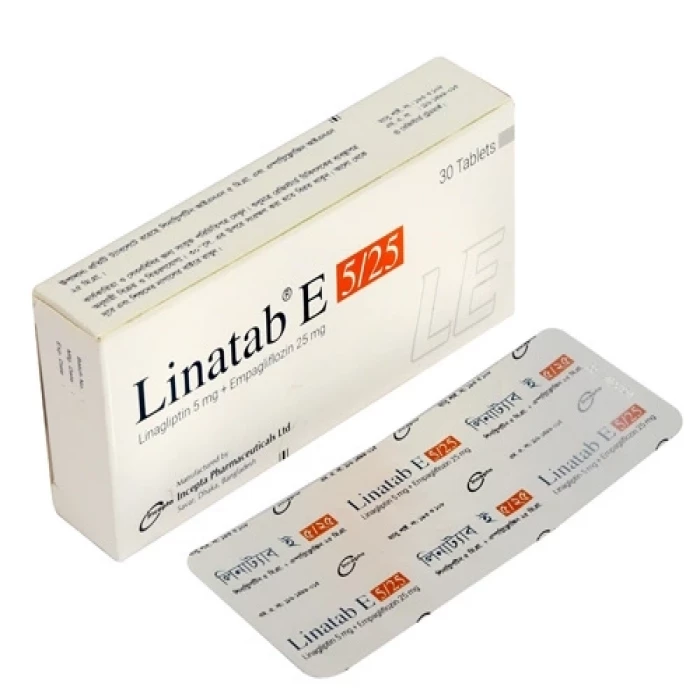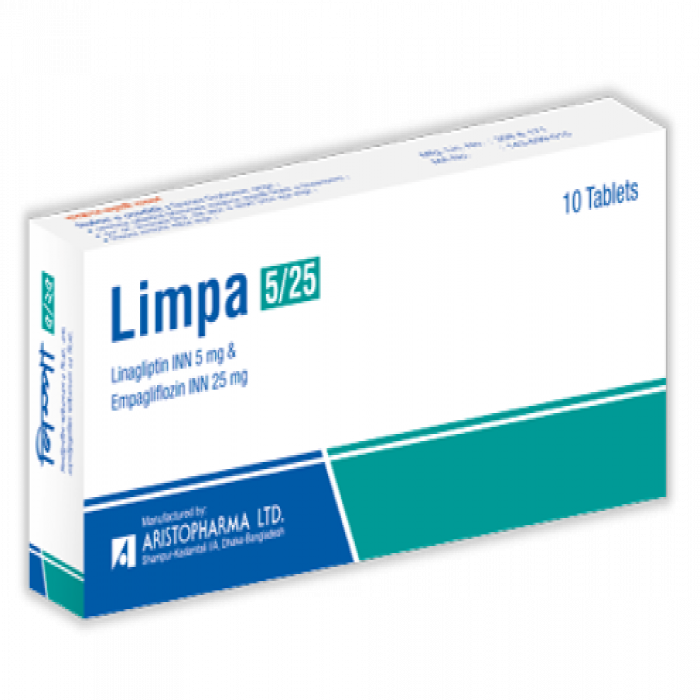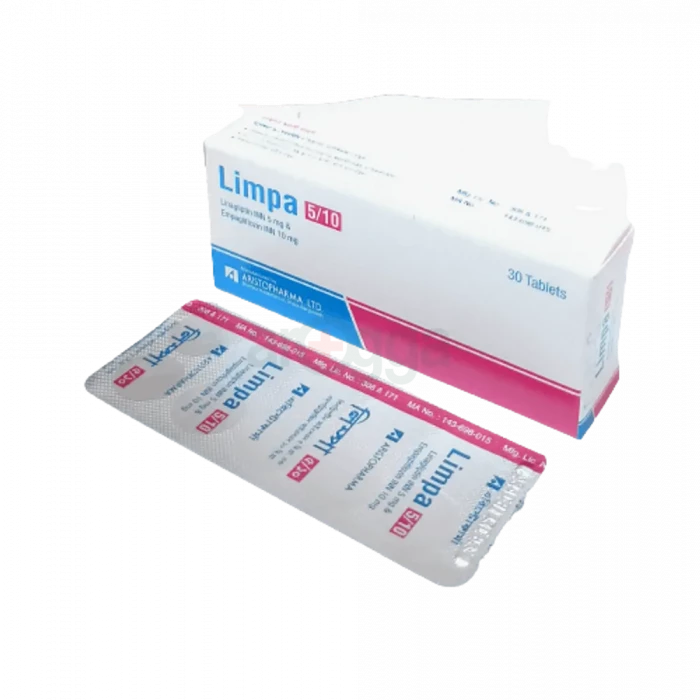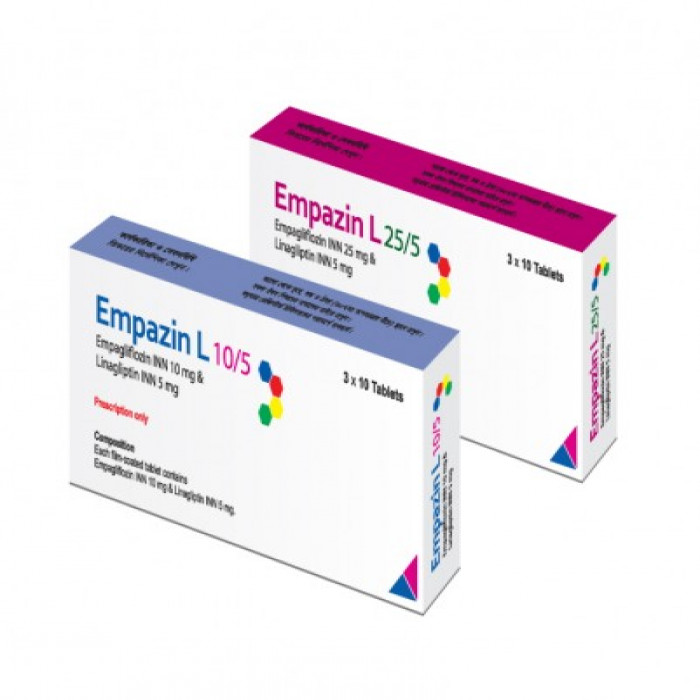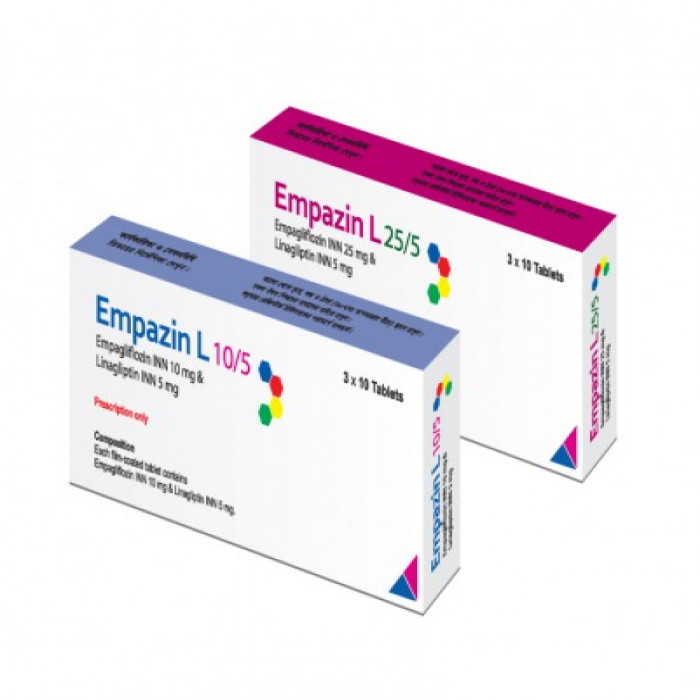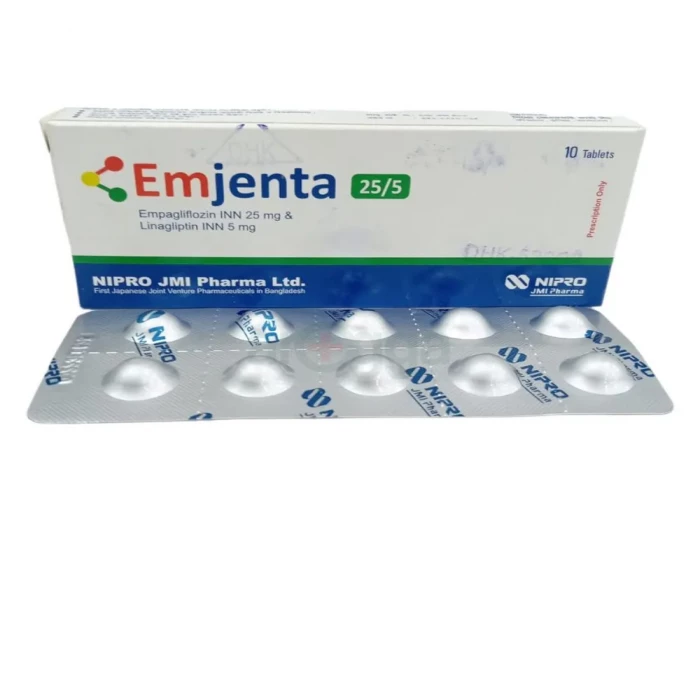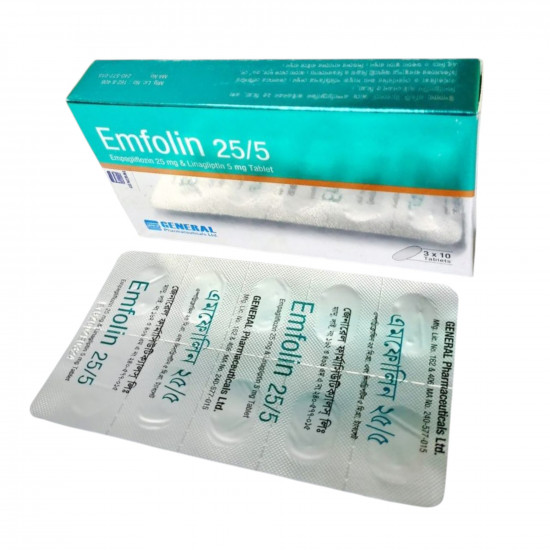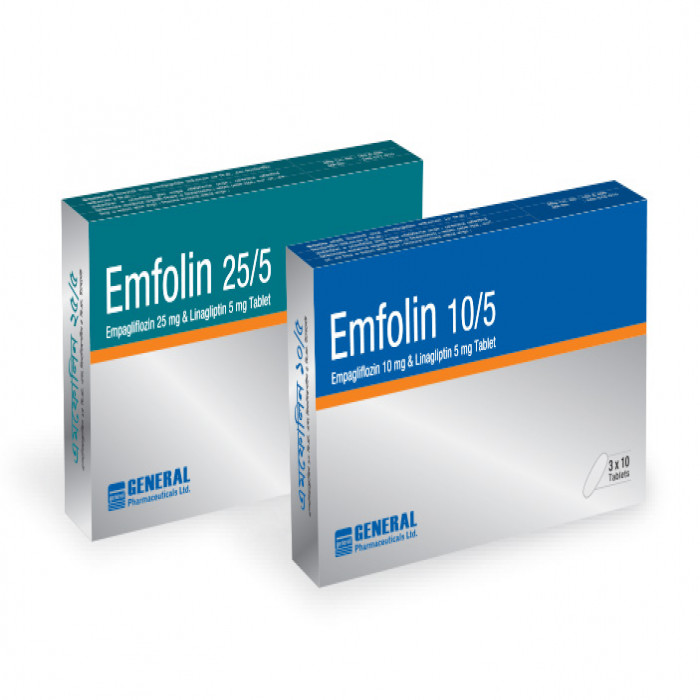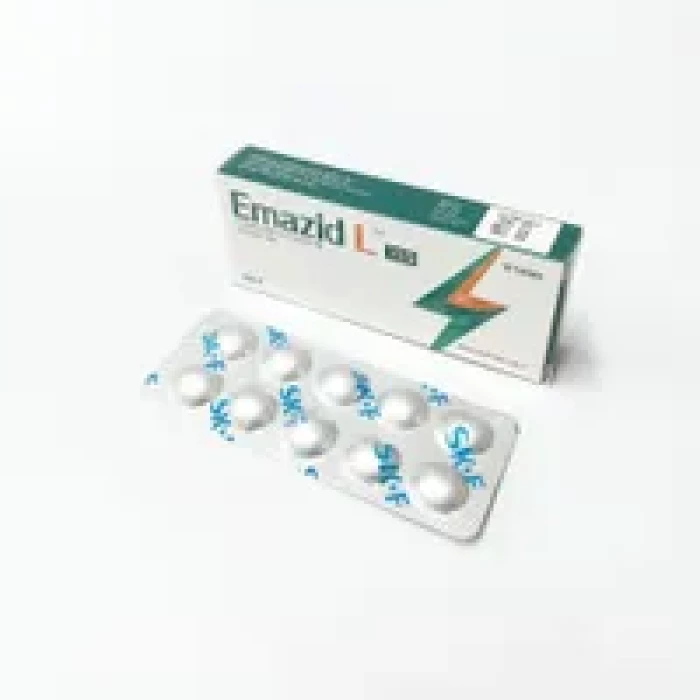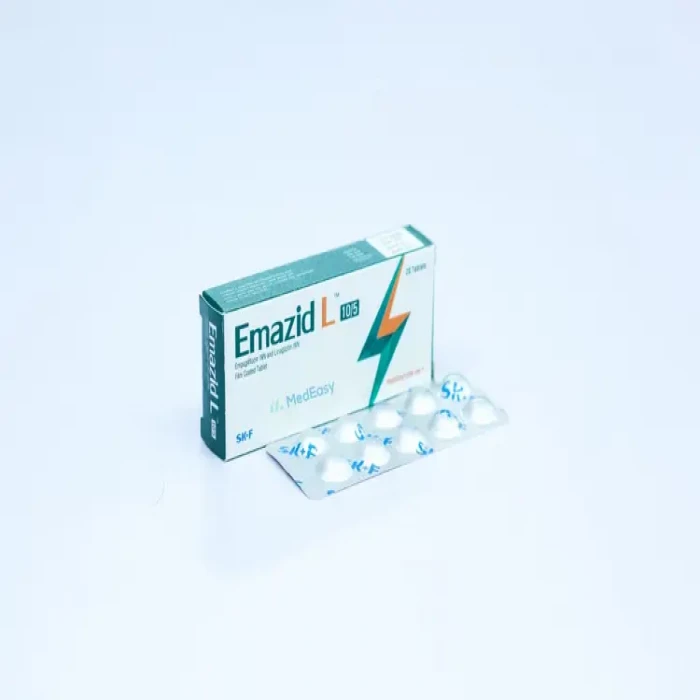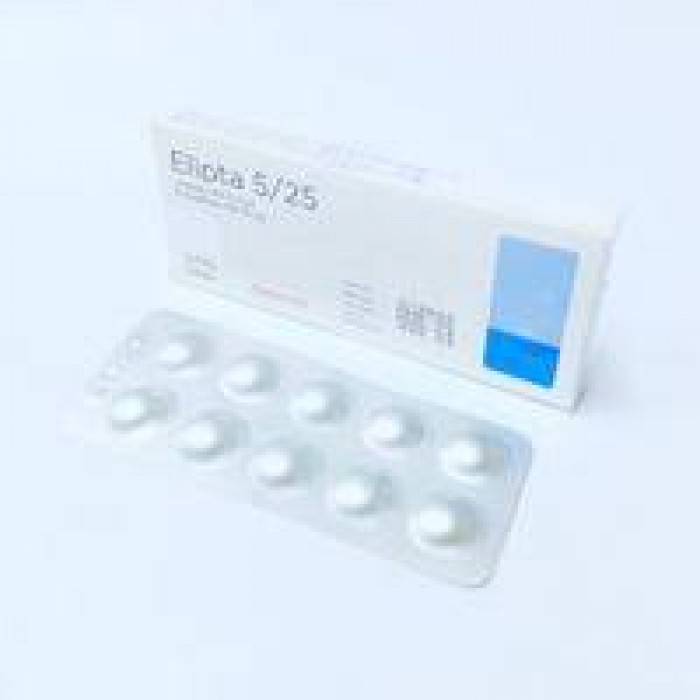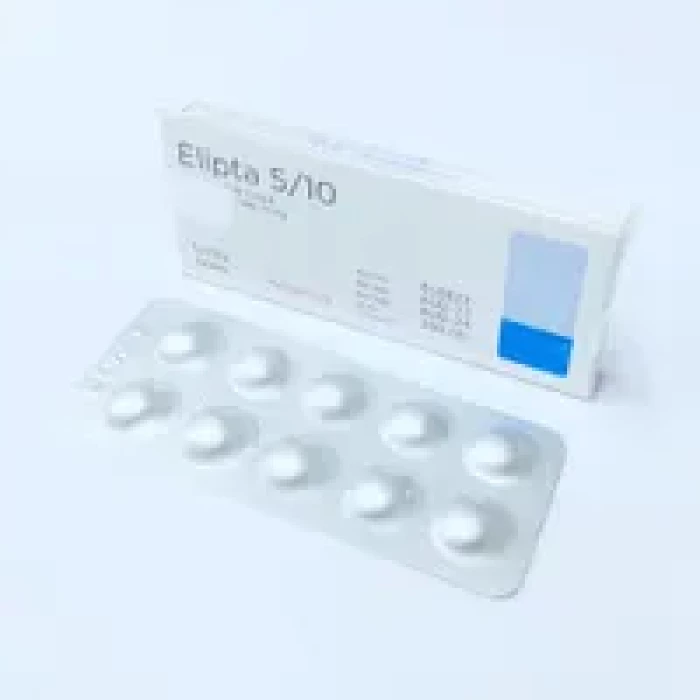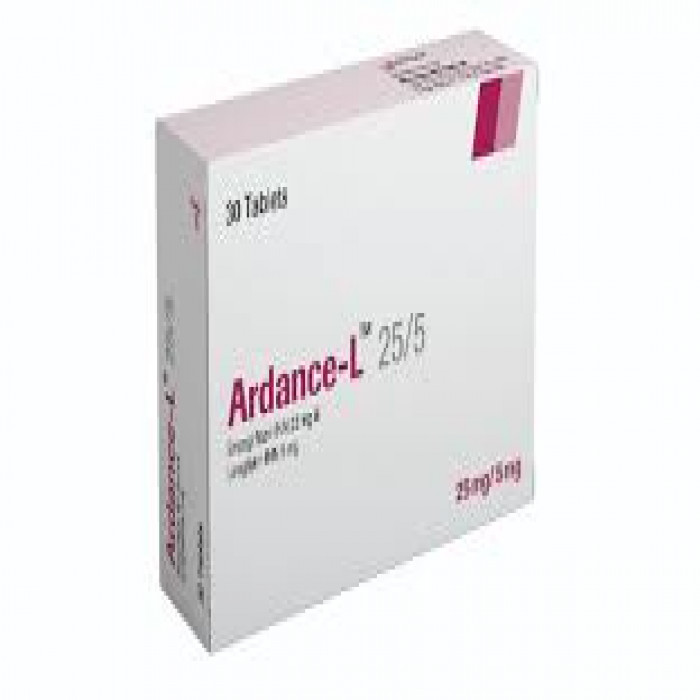
✔ 100% Authentic Product
👁️ Currently Viewing 1522
Adlina EM 25/5mg Tablet
Adlina EM 25/5mg Tablet is used for the treatment of Type 2 diabetes mellitus in adults.
Discount
Price: ৳ 392
MRP:
৳
400
2%
Off

100% Genuine Products, Guaranteed

Safe & Secure Payments, Always

Fast, Secure & Efficient Delivery

Proper Packaging
 Cash on Delivery - All over Bangladesh
Cash on Delivery - All over Bangladesh Regular Delivery - 12-24 Hours, Dhaka City* Charge Tk.39-59
Regular Delivery - 12-24 Hours, Dhaka City* Charge Tk.39-59 Regular Delivery - 24-48 Hours, Other Cities* Charge Tk.99-110
Regular Delivery - 24-48 Hours, Other Cities* Charge Tk.99-110
🌙 রমযান অফার 🌙
 ফ্রি ডেলিভারিঃ - ৭৯৯ টাকা+ অর্ডারে, ঢাকা
শহরে
ফ্রি ডেলিভারিঃ - ৭৯৯ টাকা+ অর্ডারে, ঢাকা
শহরে ফ্রি ডেলিভারিঃ - ২৭৯৯ টাকা+ অর্ডারে, ঢাকার
বাহিরে
ফ্রি ডেলিভারিঃ - ২৭৯৯ টাকা+ অর্ডারে, ঢাকার
বাহিরে
📲 মোবাইল অ্যাপ অর্ডারে সাশ্রয় বেশী
-
Google Play Store থেকে ডাউনলোড
-
Apple Store থেকে ডাউনলোড
100% Genuine Products, Guaranteed
Safe & Secure Payments, Always
Fast, Secure & Efficient Delivery
Proper Packaging
 Cash on Delivery - All over Bangladesh
Cash on Delivery - All over Bangladesh Regular Delivery - 12-24 Hours, Dhaka City* Charge Tk.39-59
Regular Delivery - 12-24 Hours, Dhaka City* Charge Tk.39-59 Regular Delivery - 24-48 Hours, Other Cities* Charge Tk.99-110
Regular Delivery - 24-48 Hours, Other Cities* Charge Tk.99-110 ফ্রি ডেলিভারিঃ - ৭৯৯ টাকা+ অর্ডারে, ঢাকা
শহরে
ফ্রি ডেলিভারিঃ - ৭৯৯ টাকা+ অর্ডারে, ঢাকা
শহরে ফ্রি ডেলিভারিঃ - ২৭৯৯ টাকা+ অর্ডারে, ঢাকার
বাহিরে
ফ্রি ডেলিভারিঃ - ২৭৯৯ টাকা+ অর্ডারে, ঢাকার
বাহিরে- Google Play Store থেকে ডাউনলোড
- Apple Store থেকে ডাউনলোড
🌙 রমযান অফার 🌙
📲 মোবাইল অ্যাপ অর্ডারে সাশ্রয় বেশী
✅ Description:
Empagliflozin+Linagliptin is a combination medication belonging to the anti-diabetic class. It's utilized primarily for treating Type 2 diabetes, a condition marked by elevated blood glucose levels. This chronic condition necessitates lifestyle changes, medication, and regular check-ups.
Containing Empagliflozin and Linagliptin (25mg+5mg), this medication is employed alongside a proper diet and exercise regimen to manage high blood sugar in Type 2 diabetes patients. Adequate control of blood sugar helps prevent complications such as kidney damage, vision problems, nerve issues, limb loss, and sexual function impairment. Managing diabetes well can also lower the risk of heart attacks or strokes. Empagliflozin enhances sugar removal by the kidneys, while Linagliptin raises levels of natural substances called incretins. Incretins aid in controlling blood sugar by boosting insulin release, particularly after meals, and reducing liver sugar production.
Administer this medication orally with or without food, usually once daily in the morning, as directed by your doctor. Dosage is determined by your medical condition and response to treatment. Consistently using this medication will yield the best outcomes. To help remember, take it at the same time each day. If your condition doesn't improve or worsens, promptly consult your doctor. Some common side effects may include frequent urination, dizziness, or light-headedness. To mitigate dizziness, rise slowly when getting up from sitting or lying positions. While most side effects are temporary, consult your doctor if they persist.
Prior to taking this medication, inform your doctor of allergies to empagliflozin, linagliptin, or any other allergens. Inactive ingredients in the product can trigger allergic reactions or other complications. Refrain from abruptly stopping Empagliflozin+Linagliptin even if you feel better, as blood sugar levels fluctuate. Abrupt discontinuation could heighten the risk of complications like vision loss, kidney problems, and nerve damage. This medication is unsuitable for Type 1 diabetes or severe kidney/liver disease. During pregnancy or lactation, discuss usage with your doctor, weighing potential risks and benefits.
Safety Advices

Alcohol
UNSAFE
Refrain from alcohol consumption while on Adlina EM 25/5mg Tablet, as it may heighten the risk of adverse effects.

Pregnancy
CONSULT YOUR DOCTOR
The effects of Adlina EM 25/5mg Tablet on unborn babies are unknown. Hence, its use during pregnancy is not advised unless recommended by your doctor.

Breastfeeding
CONSULT YOUR DOCTOR
It is uncertain whether Adlina EM 25/5mg Tablet passes into breast milk. Therefore, it should only be used during breastfeeding if deemed necessary by a physician.

Driving
CAUTION
Adlina EM 25/5mg Tablet generally does not impact your ability to drive or operate heavy machinery. However, avoid such activities if the medication affects your capabilities.

Kidney
CONSULT YOUR DOCTOR
Exercise caution if you have significant kidney issues when taking Adlina EM 25/5mg Tablet. Consult your doctor before using it.

Liver
CONSULT YOUR DOCTOR
Adlina EM 25/5mg Tablet is not recommended for individuals with severe liver problems. Prior consultation with your doctor is advised.
✔️ Uses of Adlina EM 25/5mg Tablet
- Type 2 diabetes mellitus
✔️ How does Adlina EM 25/5mg Tablet work?
Empagliflozin works by inhibiting a protein in the kidneys called sodium-glucose co-transporter 2 (SGLT-2). This action prevents the kidneys from reabsorbing glucose (sugar), leading to the elimination of excess blood sugar through urine.
Linagliptin functions by blocking another protein known as dipeptidyl-peptidase 4 (DPP-4). This inhibition prompts the pancreas to release more insulin in response to elevated blood sugar levels, particularly after meals. Consequently, the combination of Empagliflozin and Linagliptin in Adlina EM 25/5mg Tablet helps lower and maintain blood sugar levels within a suitable range.
✔️ Side Effects of Adlina EM 25/5mg Tablet
Urinary tract infection, Hypoglycemia (low blood glucose level), Cough, Nasopharyngitis (inflammation of the throat and nasal passages), Nausea, Vomiting, Constipation, Genital fungal infection
✔️ Quick Suggestions:
- Maintain Healthy Habits: Continue to exercise regularly, follow a balanced diet, and take any other prescribed diabetes medications along with Adlina EM 25/5mg Tablet.
- Take with Food: Consume the medication with food to lower the possibility of stomach discomfort.
- Genital Hygiene: Practice good genital hygiene to prevent yeast infections and urinary tract infections.
- Stay Hydrated: The medication may cause increased urination and fluid loss. Stay hydrated by drinking plenty of water. When getting up from a sitting or lying position, do so slowly to avoid dizziness.
- Check Blood Sugar: It can cause low blood sugar levels (hypoglycemia) when used with other antidiabetic medications, alcohol, or if meals are skipped or delayed. Regularly monitor your blood sugar levels.
- Be Prepared: Carry sugary food or fruit juice with you in case you experience hypoglycemia symptoms like cold sweats, pale skin, tremors, or anxiety.
- Alert Your Doctor: If you notice joint pains, stomach pain, nausea, vomiting, or any concerning symptoms, inform your doctor promptly.
✔️ Indication
Type 2 diabetes is a chronic condition that disrupts the body's ability to properly use insulin, a hormone crucial for regulating blood sugar levels. In this type of diabetes, either the body doesn't produce enough insulin or it becomes resistant to the effects of insulin. Typically, middle-aged or older individuals are at a higher risk of developing type 2 diabetes, which was formerly referred to as adult-onset diabetes.
Symptoms of type 2 diabetes encompass increased thirst, frequent nighttime urination, slow healing of wounds, heightened hunger, fatigue, and blurred vision. Weight gain is common in some cases, while weight loss might occur more rarely. Complications of type 2 diabetes can involve nerve problems (neuropathy), kidney issues (nephropathy), and damage to the retina of the eyes (retinopathy) leading to potential blindness, limb loss, sexual dysfunction, and an elevated risk of heart attacks or strokes. This chronic condition requires careful management to maintain optimal health and prevent potential complications.
✔️ Pharmacology
Empagliflozin: This medication targets the sodium-glucose co-transporter 2 (SGLT2), a crucial transporter responsible for reclaiming glucose from the filtered blood back into circulation. Empagliflozin inhibits SGLT2, reducing the reabsorption of glucose in the kidneys. This action lowers the renal threshold for glucose, leading to increased urinary glucose excretion.
Linagliptin: A DPP-4 inhibitor, Linagliptin targets an enzyme that breaks down incretin hormones, specifically glucagon-like peptide-1 (GLP-1) and glucose-dependent insulinotropic polypeptide (GIP). Linagliptin boosts active incretin hormone levels, stimulating insulin release in response to glucose levels. Additionally, it curbs glucagon secretion, thereby reducing hepatic glucose output. GLP-1 and GIP regulate glucose balance, with their levels rising post-meal.
✔️ Dosage & Administration of Adlina EM 25/5mg Tablet
For Linagliptin, a 5mg dose is taken daily. If combined with metformin, maintain the metformin dose and administer Linagliptin concurrently. Combining Linagliptin with sulphonylurea or insulin may require a lower dose of these to minimize hypoglycemia risk. Patients with renal impairment need no Linagliptin dose adjustment. Studies suggest hepatic impairment may not warrant dose adjustment, but cautious use is advised. In elderly patients, no dose change based on age is necessary, though caution is urged for those above 80 years.
Linagliptin can be taken with or without meals at any time. Missed doses should be taken as soon as remembered; however, a double dose on the same day should be avoided.
✔️ Interaction
Drug interactions can vary from person to person, so it's crucial to consult your doctor before starting any medication. Here are some interactions and precautions related to Adlina EM 25/5mg Tablet:
Interaction with Alcohol: Avoid alcohol consumption while taking Adlina EM 25/5mg Tablet, as it could lead to changes in blood sugar levels.
Interaction with Medicine: There can be interactions with various medicines, including Aripiprazole, Clozapine, Dexamethasone, Gatifloxacin, and Bexarotene. Discuss with your doctor if you are taking any of these medicines along with Adlina EM 25/5mg tablet.
Disease Interactions:
- Hypotension: Adlina EM 25/5mg Tablet should be used cautiously if you have hypotension (low blood pressure) as it might worsen your condition. Follow your doctor's instructions closely.
- Pancreatitis: If you have a history of pancreatitis (inflammation of the pancreas), use Adlina EM 25/5mg Tablet with caution. Be vigilant for symptoms like abdominal pain, nausea, vomiting, and abdominal tenderness.
- Kidney Disease: If you have a kidney condition, be cautious while using Adlina EM 25/5mg Tablet, as it might potentially worsen your kidney health.
✔️ Contraindications
Hypersensitivity to the active substance or to any of the excipients.
✔️ Pregnancy & Lactation
Limited information is available regarding the impact of Adlina EM 25/5mg Tablet on pregnant and breastfeeding women. It is recommended to avoid the use of Adlina EM 25/5mg Tablet during both pregnancy and breastfeeding. Since the effects of the medication on these specific populations are not well understood, it's best to consult your doctor for guidance before using Adlina EM 25/5mg Tablet if you are pregnant or breastfeeding. Your doctor can weigh the potential benefits and risks and help you make an informed decision about the use of the medication.
✔️ Precautions & Warnings
- This medication should not be taken under the following conditions:
- If you have type 1 diabetes, where your body doesn't produce any insulin.
- If you have diabetic ketoacidosis or develop its symptoms, such as rapid weight loss, nausea, vomiting, excessive thirst, difficulty in breathing, unusual sleepiness, tiredness, sweet smell to your breath, sweet or metallic taste in your mouth, or changes in urine smell or color.
- If you have a fever, diarrhea, or cannot eat or drink.
- If you are taking other anti-diabetic medications of the sulfonylurea class or insulin.
- If you have kidney disease or liver disease.
- If you have a history of pancreas disease.
- If you are taking diuretics or blood pressure-lowering medications (confirm with your doctor if unsure).
- If you are over 75 years old.
- If you experience continuous, severe stomach pain, suggestive of acute pancreatitis.
- If you have a serious kidney or urinary tract infection with fever.
- If you develop skin disorders like blisters and ulcers.
- If you experience pain, tenderness, redness, or swelling in the genital area along with fever.
- If you develop any foot infections.
✔️ Storage Conditions
- Store in a cool and dry place away from direct sunlight.
- Keep it out of reach of children and pets.
⚠️Disclaimer:
At ePharma, we’re committed to providing accurate and accessible health information. However, all content is intended for informational purposes only and should not replace medical advice from a qualified physician. Please consult your healthcare provider for personalized guidance. We aim to support, not substitute, the doctor-patient relationship.




